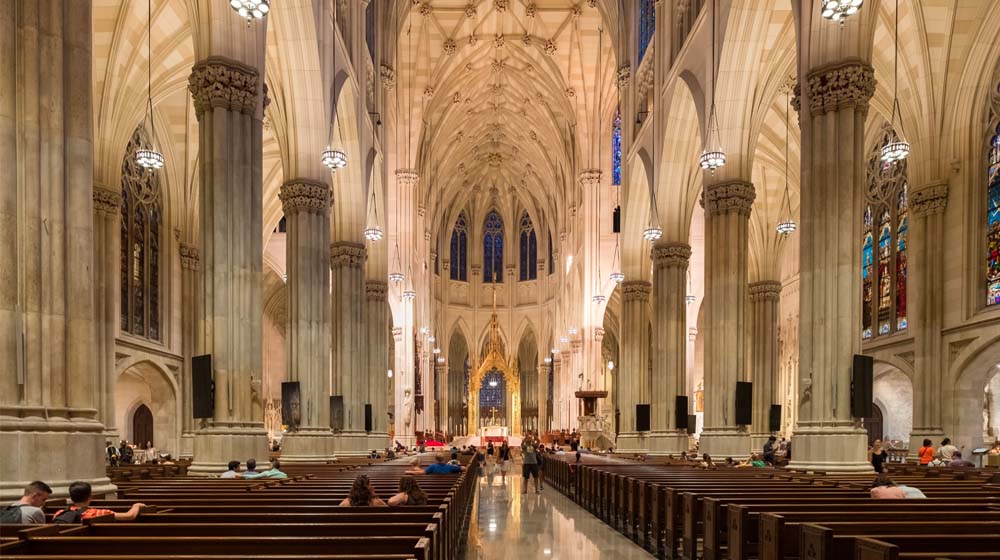In the United States, Christianity is one of the dominant religions, comprising a wide range of denominations with distinct beliefs, practices, and organizational structures. Understanding the major Christian denominations is crucial for appreciating the religious landscape and fostering dialogue and cooperation among believers. In this blog, we will delve into the seven major Christian denominations in the United States, exploring their histories, key beliefs, organizational structures, and societal influence.
Roman Catholic Church:
The Roman Catholic Church stands as the largest Christian denomination in the United States. We will explore its rich history, its key beliefs, and its hierarchical structure under the leadership of the Pope. Additionally, we will examine the Catholic Church’s significant influence and widespread presence across the country.
The Seventh-day Adventist Church:
The Seventh-day Adventist Church is a Protestant Christian denomination that emphasizes the imminent Second Coming of Jesus Christ. With a focus on biblical teachings, the observance of the Sabbath on the seventh day (Saturday), and an emphasis on holistic health, the Seventh-day Adventist Church has a strong presence in the United States. We will explore their beliefs, worship practices, and community engagement.
The Church of Jesus Christ of Latter-day Saints (LDS):
Commonly known as the Mormon Church, The Church of Jesus Christ of Latter-day Saints is a Restorationist Christian denomination that emerged in the 19th century. Central to LDS beliefs is the belief in additional scriptural texts, including the Book of Mormon. We will examine their unique doctrines, temples, and family-focused values that shape their worship and community life.
Interfaith Churches:
Interfaith churches are a unique phenomenon in the United States, bringing together individuals from various religious backgrounds under one congregation. These churches aim to foster understanding, dialogue, and cooperation among different faith traditions. We will explore the principles of interfaith churches and their efforts to promote religious tolerance and inclusivity.
Southern Baptist Convention:
The Southern Baptist Convention represents a prominent Protestant denomination known for its conservative theology and emphasis on evangelism. We will delve into the history and key beliefs of the Southern Baptist Convention, as well as its distinctive congregational autonomy and cooperative missions approach.
United Methodist Church:
With a strong focus on social justice and inclusivity, the United Methodist Church has made a significant impact on American society. We will examine its historical roots, key beliefs, and unique connectional structure that fosters collaboration among its congregations. Additionally, we will explore the theological diversity within the denomination.
Evangelical Lutheran Church in America (ELCA):
The Evangelical Lutheran Church in America (ELCA) holds a rich tradition rooted in grace, faith, and scripture. We will explore its history, key beliefs, and its commitment to social justice and inclusivity. Additionally, we will discuss the ELCA’s approach to theological diversity and its role in American Christianity.
Presbyterian Church (USA):
The Presbyterian Church (USA) has a strong emphasis on education and social witness. We will delve into its historical background, key beliefs, and its distinctive Presbyterian polity and governance structure. Moreover, we will explore its engagement with social issues and commitment to promoting justice and compassion.
Episcopal Church:
Known for its liturgical traditions and embrace of diversity, the Episcopal Church holds a significant place in American Christianity. We will explore its history, key beliefs, and its unique Episcopal polity and worship practices. Additionally, we will discuss the Episcopal Church’s commitment to social justice and inclusivity.
Assemblies of God:
The Assemblies of God represents a Pentecostal denomination characterized by its emphasis on the Holy Spirit and spiritual gifts. We will delve into its history, key beliefs, and its impact on the spiritual lives of its members. Additionally, we will explore the growth and influence of the Assemblies of God within the United States.
Conclusion:
Understanding the major Christian denominations in the United States is essential for appreciating the rich diversity within Christianity and fostering dialogue among believers. We have explored the histories, key beliefs, organizational structures, and societal influences of the seven major Christian denominations in the United States. By recognizing and respecting these differences, we can promote interdenominational understanding, cooperation, and unity in the pursuit of shared values and goals. Let us embrace the diversity that enriches our faith and encourages us to seek common ground in our spiritual journeys.


